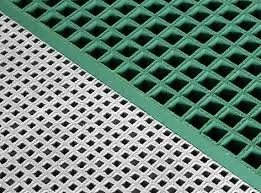
-
 Afrikaans
Afrikaans -
 Albanian
Albanian -
 Amharic
Amharic -
 Arabic
Arabic -
 Armenian
Armenian -
 Azerbaijani
Azerbaijani -
 Basque
Basque -
 Belarusian
Belarusian -
 Bengali
Bengali -
 Bosnian
Bosnian -
 Bulgarian
Bulgarian -
 Catalan
Catalan -
 Cebuano
Cebuano -
 China
China -
 China (Taiwan)
China (Taiwan) -
 Corsican
Corsican -
 Croatian
Croatian -
 Czech
Czech -
 Danish
Danish -
 Dutch
Dutch -
 English
English -
 Esperanto
Esperanto -
 Estonian
Estonian -
 Finnish
Finnish -
 French
French -
 Frisian
Frisian -
 Galician
Galician -
 Georgian
Georgian -
 German
German -
 Greek
Greek -
 Gujarati
Gujarati -
 Haitian Creole
Haitian Creole -
 hausa
hausa -
 hawaiian
hawaiian -
 Hebrew
Hebrew -
 Hindi
Hindi -
 Miao
Miao -
 Hungarian
Hungarian -
 Icelandic
Icelandic -
 igbo
igbo -
 Indonesian
Indonesian -
 irish
irish -
 Italian
Italian -
 Japanese
Japanese -
 Javanese
Javanese -
 Kannada
Kannada -
 kazakh
kazakh -
 Khmer
Khmer -
 Rwandese
Rwandese -
 Korean
Korean -
 Kurdish
Kurdish -
 Kyrgyz
Kyrgyz -
 Lao
Lao -
 Latin
Latin -
 Latvian
Latvian -
 Lithuanian
Lithuanian -
 Luxembourgish
Luxembourgish -
 Macedonian
Macedonian -
 Malgashi
Malgashi -
 Malay
Malay -
 Malayalam
Malayalam -
 Maltese
Maltese -
 Maori
Maori -
 Marathi
Marathi -
 Mongolian
Mongolian -
 Myanmar
Myanmar -
 Nepali
Nepali -
 Norwegian
Norwegian -
 Norwegian
Norwegian -
 Occitan
Occitan -
 Pashto
Pashto -
 Persian
Persian -
 Polish
Polish -
 Portuguese
Portuguese -
 Punjabi
Punjabi -
 Romanian
Romanian -
 Russian
Russian -
 Samoan
Samoan -
 Scottish Gaelic
Scottish Gaelic -
 Serbian
Serbian -
 Sesotho
Sesotho -
 Shona
Shona -
 Sindhi
Sindhi -
 Sinhala
Sinhala -
 Slovak
Slovak -
 Slovenian
Slovenian -
 Somali
Somali -
 Spanish
Spanish -
 Sundanese
Sundanese -
 Swahili
Swahili -
 Swedish
Swedish -
 Tagalog
Tagalog -
 Tajik
Tajik -
 Tamil
Tamil -
 Tatar
Tatar -
 Telugu
Telugu -
 Thai
Thai -
 Turkish
Turkish -
 Turkmen
Turkmen -
 Ukrainian
Ukrainian -
 Urdu
Urdu -
 Uighur
Uighur -
 Uzbek
Uzbek -
 Vietnamese
Vietnamese -
 Welsh
Welsh -
 Bantu
Bantu -
 Yiddish
Yiddish -
 Yoruba
Yoruba -
 Zulu
Zulu
fiberglass rectangular tank
The Advantages of Fiberglass Rectangular Tanks
In recent years, fiberglass rectangular tanks have emerged as a popular choice for various industrial and agricultural applications. These tanks are constructed from fiberglass-reinforced plastic (FRP), which combines the advantages of durability, corrosion resistance, and lightweight properties. As industries seek efficient and reliable storage solutions, fiberglass rectangular tanks present a variety of benefits that make them an ideal choice for a wide range of uses.
One of the primary advantages of fiberglass rectangular tanks is their exceptional durability. Unlike traditional materials like steel or concrete, fiberglass is resistant to rust and corrosion, making it suitable for storing a wide range of substances, including water, chemicals, and wastewater. This resistance to environmental factors ensures that the tanks have a longer lifespan, reducing the need for frequent replacements and maintenance. In harsh environments or conditions where chemical exposure is common, fiberglass tanks maintain their structural integrity and are less likely to degrade over time.
Another key benefit of fiberglass rectangular tanks is their lightweight nature. Compared to steel tanks, fiberglass tanks are significantly lighter, making them easier to transport and install. This lightweight characteristic not only reduces shipping costs but also simplifies the installation process, allowing for faster and more efficient setup on-site. Many manufacturers even offer customizable options, enabling businesses to specify dimensions and tank capacities that perfectly fit their needs.
fiberglass rectangular tank

The design flexibility of fiberglass rectangular tanks is another appealing feature. Fiberglass can be molded into various shapes and sizes, allowing for tailored solutions that meet specific requirements. This adaptability is particularly advantageous in applications where space is limited or where custom dimensions are essential for optimal functionality. Additionally, the smooth surface of fiberglass tanks minimizes the risk of biofilm development, making them easier to clean and sanitize, especially in food and beverage applications.
Cost-effectiveness is also a notable advantage when considering fiberglass rectangular tanks. While the initial investment may be higher than some alternatives, the long-term savings on maintenance, repairs, and replacements can be substantial. Fiberglass tanks do not require protective coatings or linings, and their resistance to wear and tear minimizes the frequency and costs associated with upkeep. Businesses can benefit from reduced downtime and lower operating costs over the lifespan of the tank.
Furthermore, fiberglass rectangular tanks are eco-friendly. The materials used in their production are typically recyclable, and the extended lifespan of the tanks contributes positively to sustainability efforts by reducing waste. Many manufacturers of fiberglass tanks are also incorporating more sustainable practices in their production processes, further enhancing the eco-friendliness of these storage solutions.
In conclusion, fiberglass rectangular tanks offer a myriad of advantages that make them an ideal choice for industries requiring reliable storage solutions. Their durability, lightweight nature, design flexibility, cost-effectiveness, and eco-friendliness set them apart from traditional storage options. As industries continue to evolve and prioritize efficiency and sustainability, embracing fiberglass rectangular tanks is a step toward optimizing storage capabilities while minimizing environmental impact. With their myriad benefits, it’s easy to see why these tanks have become a staple in various sectors, including agriculture, wastewater treatment, and chemical storage.









